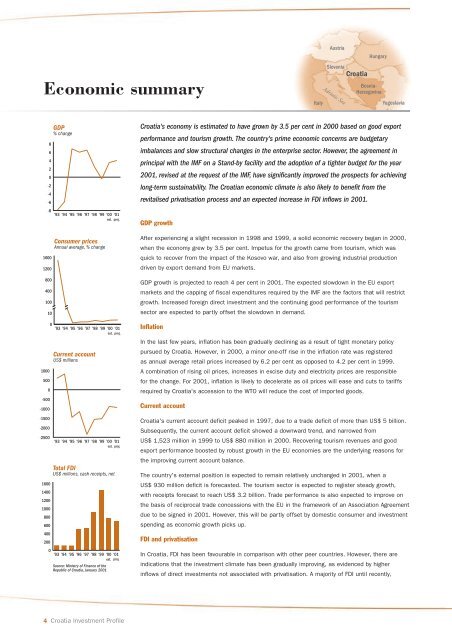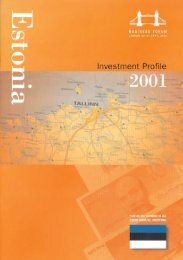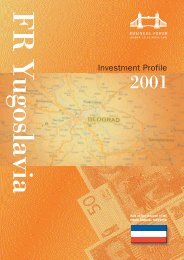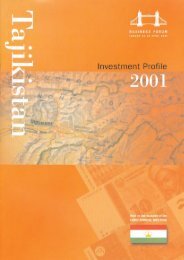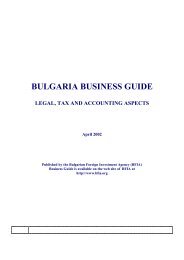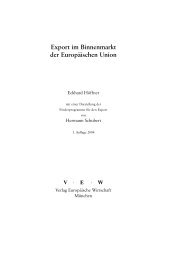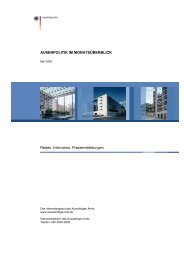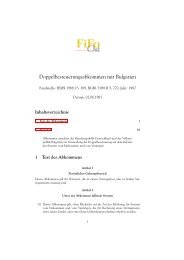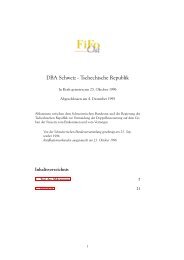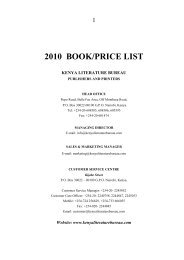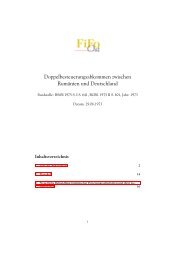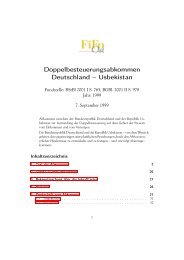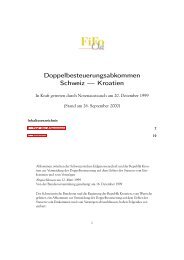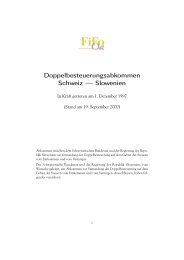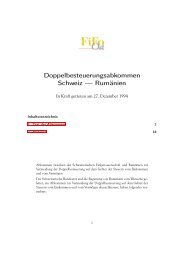Introduction - FiFo Ost
Introduction - FiFo Ost
Introduction - FiFo Ost
Create successful ePaper yourself
Turn your PDF publications into a flip-book with our unique Google optimized e-Paper software.
Economic summary<br />
8<br />
6<br />
4<br />
2<br />
0<br />
-2<br />
-4<br />
-6<br />
-8<br />
’93 ’94 ’95 ’96 ’97 ’98 ’99 ’00 ’01<br />
est. proj.<br />
1600<br />
1200<br />
800<br />
400<br />
100<br />
1000<br />
10<br />
500<br />
0<br />
-500<br />
-1000<br />
-1500<br />
-2000<br />
0<br />
GDP<br />
% change<br />
Consumer prices<br />
Annual average, % change<br />
’93 ’94 ’95 ’96 ’97 ’98 ’99 ’00 ’01<br />
est. proj.<br />
-2500<br />
’93 ’94 ’95 ’96 ’97 ’98 ’99 ’00 ’01<br />
est. proj.<br />
1600<br />
1400<br />
1200<br />
1000<br />
800<br />
600<br />
400<br />
200<br />
Current account<br />
US$ millions<br />
Total FDI<br />
US$ millions, cash receipts, net<br />
0<br />
’93 ’94 ’95 ’96 ’97 ’98 ’99 ’00 ’01<br />
est.<br />
proj.<br />
Source: Ministry of Finance of the<br />
Republic of Croatia, January 2001<br />
4 Croatia Investment Profile<br />
Croatia's economy is estimated to have grown by 3.5 per cent in 2000 based on good export<br />
performance and tourism growth. The country's prime economic concerns are budgetary<br />
imbalances and slow structural changes in the enterprise sector. However, the agreement in<br />
principal with the IMF on a Stand-by facility and the adoption of a tighter budget for the year<br />
2001, revised at the request of the IMF, have significantly improved the prospects for achieving<br />
long-term sustainability. The Croatian economic climate is also likely to benefit from the<br />
revitalised privatisation process and an expected increase in FDI inflows in 2001.<br />
GDP growth<br />
After experiencing a slight recession in 1998 and 1999, a solid economic recovery began in 2000,<br />
when the economy grew by 3.5 per cent. Impetus for the growth came from tourism, which was<br />
quick to recover from the impact of the Kosovo war, and also from growing industrial production<br />
driven by export demand from EU markets.<br />
GDP growth is projected to reach 4 per cent in 2001. The expected slowdown in the EU export<br />
markets and the capping of fiscal expenditures required by the IMF are the factors that will restrict<br />
growth. Increased foreign direct investment and the continuing good performance of the tourism<br />
sector are expected to partly offset the slowdown in demand.<br />
Inflation<br />
In the last few years, inflation has been gradually declining as a result of tight monetary policy<br />
pursued by Croatia. However, in 2000, a minor one-off rise in the inflation rate was registered<br />
as annual average retail prices increased by 6.2 per cent as opposed to 4.2 per cent in 1999.<br />
A combination of rising oil prices, increases in excise duty and electricity prices are responsible<br />
for the change. For 2001, inflation is likely to decelerate as oil prices will ease and cuts to tariffs<br />
required by Croatia's accession to the WTO will reduce the cost of imported goods.<br />
Current account<br />
Croatia's current account deficit peaked in 1997, due to a trade deficit of more than US$ 5 billion.<br />
Subsequently, the current account deficit showed a downward trend, and narrowed from<br />
US$ 1,523 million in 1999 to US$ 880 million in 2000. Recovering tourism revenues and good<br />
export performance boosted by robust growth in the EU economies are the underlying reasons for<br />
the improving current account balance.<br />
The country's external position is expected to remain relatively unchanged in 2001, when a<br />
US$ 930 million deficit is forecasted. The tourism sector is expected to register steady growth,<br />
with receipts forecast to reach US$ 3.2 billion. Trade performance is also expected to improve on<br />
the basis of reciprocal trade concessions with the EU in the framework of an Association Agreement<br />
due to be signed in 2001. However, this will be partly offset by domestic consumer and investment<br />
spending as economic growth picks up.<br />
FDI and privatisation<br />
Croatia<br />
Bosnia-<br />
Herzegovina<br />
In Croatia, FDI has been favourable in comparison with other peer countries. However, there are<br />
indications that the investment climate has been gradually improving, as evidenced by higher<br />
inflows of direct investments not associated with privatisation. A majority of FDI until recently,<br />
Italy<br />
Austria<br />
Slovenia<br />
Adriatic Sea<br />
Hungary<br />
Yugoslavia


